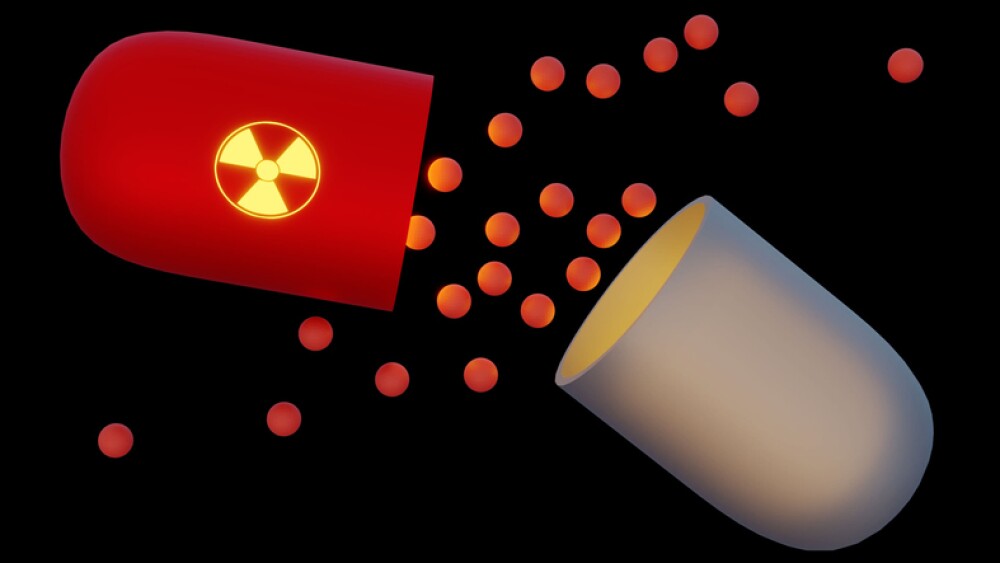BDTX-1535 dose of 200 mg daily selected for pivotal development; favorable tolerability profile and no new safety signals observed
Preliminary ORR of 42% in 19 patients at 200 mg with on-target resistance EGFR mutations
Encouraging durability with DOR of approximately 8 months or more for first 3 patients with a PR; 14 of 19 patients remain on treatment
Regulatory feedback on registration path anticipated in Q1 2025
Initial results of BDTX-1535 in first-line NSCLC patients with non-classical EGFR mutations expected Q1 2025
CAMBRIDGE, Mass., Sept. 23, 2024 (GLOBE NEWSWIRE) -- Black Diamond Therapeutics, Inc. (Nasdaq: BDTX), a clinical-stage oncology company developing MasterKey therapies that target families of oncogenic mutations in patients with cancer, today reported initial Phase 2 data demonstrating encouraging clinical responses and durability of BDTX-1535 in patients with relapsed/refractory epidermal growth factor receptor (EGFR)-mutant (EGFRm) non-small cell lung cancer (NSCLC).
“Patients often become resistant to osimertinib with the emergence of on-target resistance EGFR mutations,” said Sergey Yurasov, M.D., Chief Medical Officer of Black Diamond Therapeutics. “Our preliminary Phase 2 data demonstrate the potential of BDTX-1535 to deliver durable responses for these patients.”
“Patients with recurrent EGFRm NSCLC have few treatment options, with chemotherapy delivering limited benefit and significant toxicity, and initial Phase 2 data with BDTX-1535 look quite promising,” said Danny Nguyen, M.D., Assistant Clinical Professor, Department of Medical Oncology and Therapeutics Research at City of Hope. “There is a significant unmet medical need for an effective and well-tolerated oral therapy for patients who progress on osimertinib, as well as newly diagnosed patients with non-classical mutations.”
Phase 2 preliminary data overview:
The phase 2 trial began in August of 2023, and enrolled relapsed/refractory patients with non-classical EGFR mutations (NCMs) (Cohort 1) and those with C797S resistance mutations (Cohort 2). Safety assessment and dose selection were based upon the first 40 patients randomized to receive BDTX-1535 once daily at either 100 mg or 200 mg across both Cohorts. Preliminary response rate and durability were assessed in 27 patients at 200 mg with an August 17, 2024, data cutoff, including 22 response-evaluable patients who met protocol eligibility criteria.
Key takeaways:
- 200 mg daily selected for pivotal clinical development. Dose selection was based primarily on pharmacokinetics, safety and tolerability data from 20 patients at 100 mg, and 20 patients at 200 mg.
- Favorable tolerability profile at 200 mg, consistent with prior BDTX-1535 clinical data. The majority of adverse events were mild or moderate, and no new safety signals were observed. The most common on-target treatment-related adverse events were rash (70%) and diarrhea (35%). There were 2 cases of grade 3 rash, and no reported cases of grade 4 rash or grade 3/4 diarrhea.
- Preliminary objective response rate (ORR) of 42% achieved in 19 patients. For the 22 response-evaluable patients, the preliminary ORR was 36%. Nineteen of these 22 patients expressed known osimertinib resistance mutations: either C797S or P-loop alpha-C helix compressing (PACC, a major subset of NCMs). Of these 19 patients, 8 achieved a response (42%): 5 with a confirmed partial response (PR), including 1 patient who converted from a PR to an unconfirmed complete response (CR) at 8 months (and awaits confirmatory scan); and 3 with an unconfirmed PR at first scan and awaiting a confirmatory scan. An additional 9 patients experienced stable disease.
- Encouraging durability observed, with duration of response (DOR) of approximately 8 months or more for first 3 patients with PR; 14 of 19 patients remain on therapy. Mean follow-up time is 4.7 months.
“We are pleased to see significant Phase 2 clinical activity and tolerability that are consistent with our Phase 1 results,” said Mark Velleca, M.D., Ph.D., Chief Executive Officer of Black Diamond Therapeutics. “We believe that the activity observed in the recurrent setting can translate to robust clinical benefit in the first-line setting, and we look forward to sharing data from our trial in newly diagnosed patients in Q1 2025.”
Black Diamond continues to enroll patients in the second- and third-line cohorts, as well as in the first-line setting for patients with non-classical EGFR mutations. In Q1 2025, the Company expects to disclose initial results from the first-line cohort and to outline potential registrational paths in the recurrent setting based on FDA feedback.
About BDTX-1535
BDTX-1535 is an oral, brain-penetrant MasterKey inhibitor of oncogenic EGFR mutations in NSCLC, including classical driver mutations, non-classical driver mutations, and the acquired resistance C797S mutation. BDTX-1535 is a fourth-generation tyrosine kinase inhibitor (TKI) that potently inhibits, based on preclinical data, more than 50 oncogenic EGFR mutations expressed across a diverse group of patients with NSCLC in multiple lines of therapy. Based on preclinical data, BDTX-1535 also inhibits EGFR extracellular domain mutations and alterations commonly expressed in glioblastoma (GBM) and avoids paradoxical activation observed with earlier generation reversible TKIs. A “window of opportunity” trial of BDTX-1535 in patients with GBM is ongoing (NCT06072586) and a Phase 2 trial is ongoing in patients with NSCLC (NCT05256290).
About Black Diamond Therapeutics
Black Diamond Therapeutics is a clinical-stage oncology company developing MasterKey therapies that target families of oncogenic mutations in patients with cancer. The Company’s MasterKey therapies are designed to address a broad spectrum of genetically defined tumors, overcome resistance, minimize wild-type mediated toxicities, and be brain penetrant to treat central nervous system disease. The Company is advancing two clinical-stage programs: BDTX-1535, a brain-penetrant fourth-generation EGFR MasterKey inhibitor targeting EGFR mutant NSCLC and GBM, and BDTX-4933, a brain-penetrant RAF MasterKey inhibitor targeting KRAS, NRAS and BRAF alterations in solid tumors. For more information, please visit www.blackdiamondtherapeutics.com.
Forward-Looking Statements
Statements contained in this press release regarding matters that are not historical facts are “forward-looking statements” within the meaning of the Private Securities Litigation Reform Act of 1995. Because such statements are subject to risks and uncertainties, actual results may differ materially from those expressed or implied by such forward-looking statements. Such statements include, but are not limited to, statements regarding: the potential of BDTX-1535 to address the unmet medical need for patients with recurrent NSCLC and for newly diagnosed NSCLC patients with non-classical EGFR mutations and benefit patients with NSCLC across multiple lines of therapy, the continued development and advancement of BDTX-1535, including the ongoing clinical trials and the timing of clinical updates for BDTX-1535 in patients with NSCLC and in patients with recurrent GBM; the expected timing for regulatory feedback and potential registrational pathways for BDTX-1535 in NSCLC; the estimates regarding the market opportunities for the Company’s product candidates; and the potential future development plans for BDTX-1535 in NSCLC. Any forward-looking statements in this press release are based on management’s current expectations of future events and are subject to a number of risks and uncertainties that could cause actual results to differ materially and adversely from those set forth in or implied by such forward-looking statements. Risks that contribute to the uncertain nature of the forward-looking statements include those risks and uncertainties set forth in its Annual Report on Form 10-K for the year ended December 31, 2023, filed with the United States Securities and Exchange Commission and in its subsequent filings filed with the United States Securities and Exchange Commission. All forward-looking statements contained in this press release speak only as of the date on which they were made. The Company undertakes no obligation to update such statements to reflect events that occur or circumstances that exist after the date on which they were made.
Contacts
For Investors:
Mario Corso, Head of Investor Relations, Black Diamond Therapeutics
mcorso@bdtx.com
For Media:
media@bdtx.com





